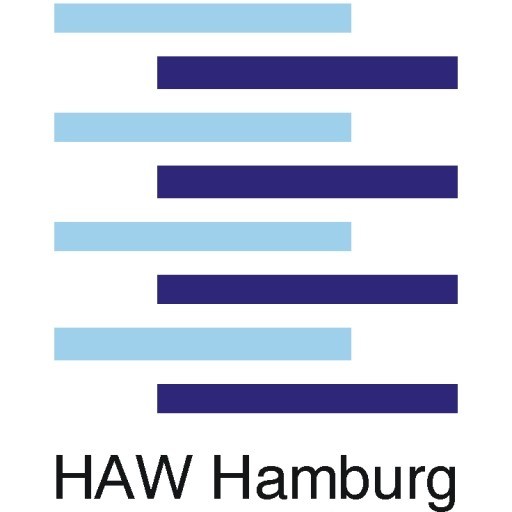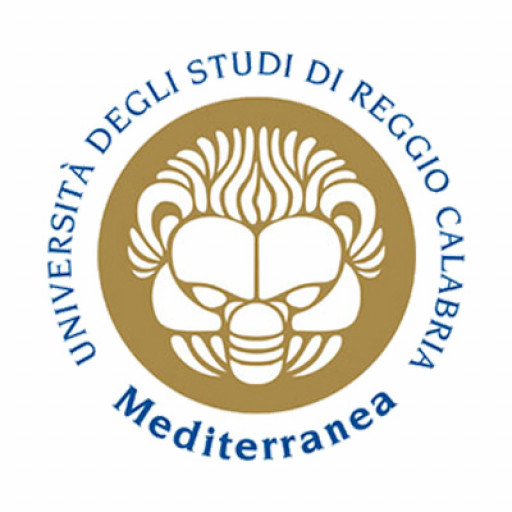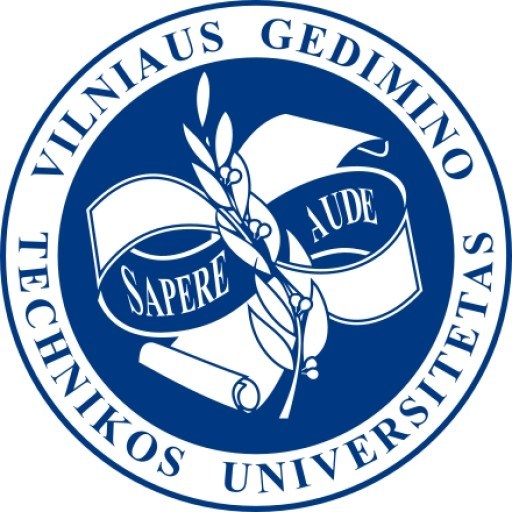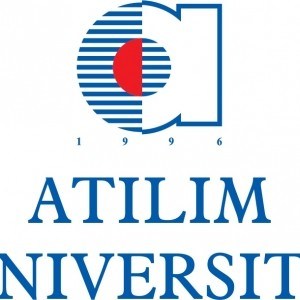Photos of university / #HAWHamburg
The first two semesters will supply the mathematical fundamentals for scientific engineering (12 TU). During the following two semesters, the basics of signal and system theory (8 TU) are taught, which are essential for information technology in general.
Introduction to Electrical Engineering and Electrical Engineering
In this series of lectures, the foundations of electrical engineering (8 TU) are presented, which include basic measuring techniques and methods of design and analysis of linear and nonlinear circuits. These courses are supplemented by two lectures on electronics which introduce electronic devices and the foundations of analogue electronic circuits (9.5 TU). One lecture on digital circuits (4 TU) completes this series.
Electrical Engineering Applications
Information and communication systems are software-based and work on application-specific hardware. Fundamentals of microcontroller architectures and programming are introduced in one course (5.5 TU). An additional course (4 TU) will offer the design and implementation of application-specific digital systems and the corresponding hardware description language VHDL.
Software Construction
Technical systems are widely based on software. Therefore, knowledge of programming languages and methods of software design is absolutely essential. This course introduces the procedure-oriented programming language C and the object-oriented language JAVA (9.5 TU). Additional topics are algorithms and data structures (4 TU).
Computer Science
This course is based on the course "software construction". It contains methods and procedures to design complex software systems (4 TU) and is completed with modern concepts of databases (4 TU) and operating systems (4 TU). Finally, there is a software engineering project in which students have to apply their knowledge to solve a manageable problem in small groups.
Advanced Engineering Topics and Electives
Students specialise in further fields of engineering by electives (15 TU) and the following modules: bus systems and sensors (4 TU), digital communication systems (4 TU) and digital signal processing (4 TU) which deal with the transmission and processing of analogue and digital signals.
Non-technical Modules
The programme complements the engineering modules with other modules that prepare graduates for success in their careers: Economics & Management and Scientific & Project Work (8 TU), Intercultural Competence (2 TU) and German Language (2 TU). The study process is supported by two modules in Learning and Study Methods (4.5 TU).
1 TU = teaching unit of 45 minutes per week
Educational organisation
- First Semester
- Mathematics 1 (5 TU) + Exercise (1 TU)
- Electrical Engineering 1 (3 TU) + Lab (1 TU)
- Software Construction 1 (4 TU) + Lab (1.5 TU)
- German (2 TU)
- Learning and Study Methods (3.25 TU)
- Second Semester
- Mathematics 2 (5 TU) + Exercise (1 TU)
- Electrical Engineering 2 (3 TU) + Lab (1 TU)
- Electronics 1 (3 TU) + Lab (1 TU)
- Software Construction 2 (3 TU) + Lab (1 TU)
- Intercultural Competence (2 TU)
- Learning and Study Methods (1.25 TU)
- Third Semester
- Signals and Systems 1 (3 TU) + Lab (1TU)
- Electronics 2 (4 TU) + Lab (1.5 TU)
- Digital Circuits (3 TU) + Lab (1 TU)
- Algorithms & Data Structures (3 TU) + Lab (1 TU)
- Economics & Management (3 TU) + Exercise (1 TU)
- Fourth Semester
- Signals and Systems 2 (3 TU) + Lab (1 TU)
- Digital Systems 1 (3 TU) + Lab (1 TU)
- Microcontrollers (3 TU) + Lab (1 TU)
- Software Engineering 1 (3 TU) + Lab (1 TU)
- Data Bases (3 TU) + Lab (1 TU)
- Fifth Semester
- Scientific & Project Work (2 TU)
- Industrial Placement 20 weeks
- Sixth Semester
- Operating Systems (3 TU) + Lab (1 TU)
- Bus Systems and Sensors (3 TU) + Lab (1 TU)
- Digital Signal Processing (3 TU) + Lab (1 TU)
- Digital Communication Systems (3 TU) + Lab (1 TU)
- Elective Project 1 (3 TU)
- Seventh Semester
- Elective Module 1 (3 TU) + Lab (2 TU); Elective Module 2 (3 TU) + Lab (1 TU)
- Elective Project 2 (4 TU)
- Bachelor's Thesis
1 TU = teaching unit of 45 minutes/week
Internships
An internship of twenty weeks is to be completed during the fifth semester. Programme advisers will assist students in finding an appropriate internship.Forms of assessment
Written examination, oral examination, presentation, written lab reportsCourse objectives
Educational goals:- learn the fundamentals in the fields of information technology, electronics and computer sciences in order to understand current complex information engineering systems
- acquire solid knowledge of hardware and software development
- create solutions that are technically workable and economically sound
- master structured approaches to analysing and solving problems
Language requirements
TOEFL at least 550 (paper-based), 220 (computer-based), 83 (internet-based); IELTS at least band 6 or equivalentThis is correct at time of publication. Changes are possible. Please see the university website for official TOEFL score levels.
Academic requirements
- Secondary school certificate (twelve school years minimum) equivalent to the German "Abitur" or "Fachhochschulreife"
- Language certificate for English if not first language (see language requirements)
uni-assist:
Students who completed their school education outside Germany must have their certificates approved by uni-assist (http://www.uni-assist.de) BEFORE applying to the HAW Hamburg. The pre-registration documentation (VPD) from uni-assist must be sent with the application forms, etc., when applying to the HAW Hamburg. Please be advised that this process can take six to eight weeks, so please apply early.
Strong interest in technology and technical systems, good understanding of mathematics, ability to think in abstract ways
For more Information: http://www.haw-hamburg.de/english/international-degree-students/bachelor-applicants.html
Want to improve your English level for admission?
Prepare for the program requirements with English Online by the British Council.
- ✔️ Flexible study schedule
- ✔️ Experienced teachers
- ✔️ Certificate upon completion
📘 Recommended for students with an IELTS level of 6.0 or below.
Enrolment fees
Semester contribution of approx. 318 EUR (as of June 2016). This fee includes a semester ticket for unlimited travel on Hamburg's public transport system.Costs of living
Hamburg is a relatively expensive city. Depending on your lifestyle, you should expect living costs of 700 to 900 EUR for rent, food, and other expenses. In addition, there will be costs for materials, which (depending on the degree programme) will range between 125 and 250 EUR per semester.Job opportunities
You should plan to be able to study in Hamburg without having to work part-time. If you are coming on a visa, you will have to provide proof of your finances (697 EUR/month).EU students can work 20 hours/week.
International students from non-EU countries are only permitted to work 120 days (240 half days) in one calendar year, and part-time job opportunities are limited, especially, for students who do not speak German. It is unlikely that we will be able to offer you a job on campus.
Funding opportunities within the university
Students can apply for scholarships for academic excellence once they have successfully completed their first two semesters.They can also apply for an examination scholarship when they are in their final semester as a financial support while completing their Bachelor's thesis.http://www.haw-hamburg.de/english/international-degree-students/tuition-fees-scholarships/bachelor-scholarships.html
Arrival support
The International Office offers a buddy programme (weBuddy), and you will be sent information about this when you register to study at the university. This programme matches you with an older student who will help you to get settled and assist with administration issues, etc.There is also an orientation week at the beginning of the course. A professor in the department is the main course coordinator.
Services and support for international students
The International Office at Hamburg University of Applied Sciences offers support for international students once they have enrolled at the university. Additional academic support will be offered by professors directly in the department.Accommodation
It is becoming increasingly difficult to find accommodation in Hamburg, so please be aware that finding somewhere to live can take a while.The halls of residence in Hamburg are run by the Studierendenwerk Hamburg and offer affordable accommodation for students under the age of 30. Generally, students have their own rooms in an apartment that they share with other students - the bathroom and kitchen are shared. The monthly rent for a room in a student hall of residence starts at roughly 250 EUR (including heating, water, and electricity). At the earliest, new students can apply three months before the start of their degree programme. Further information on the halls of residence as well as the application form can be found on the Studierendenwerk Hamburg website: http://www.studierendenwerk-hamburg.de/studierendenwerk/en/wohnen/aktuelle_infos/.
Further information on accommodation can be found on the university's website:
https://www.haw-hamburg.de/english/international-degree-students/campus-life/accommodation.html.










